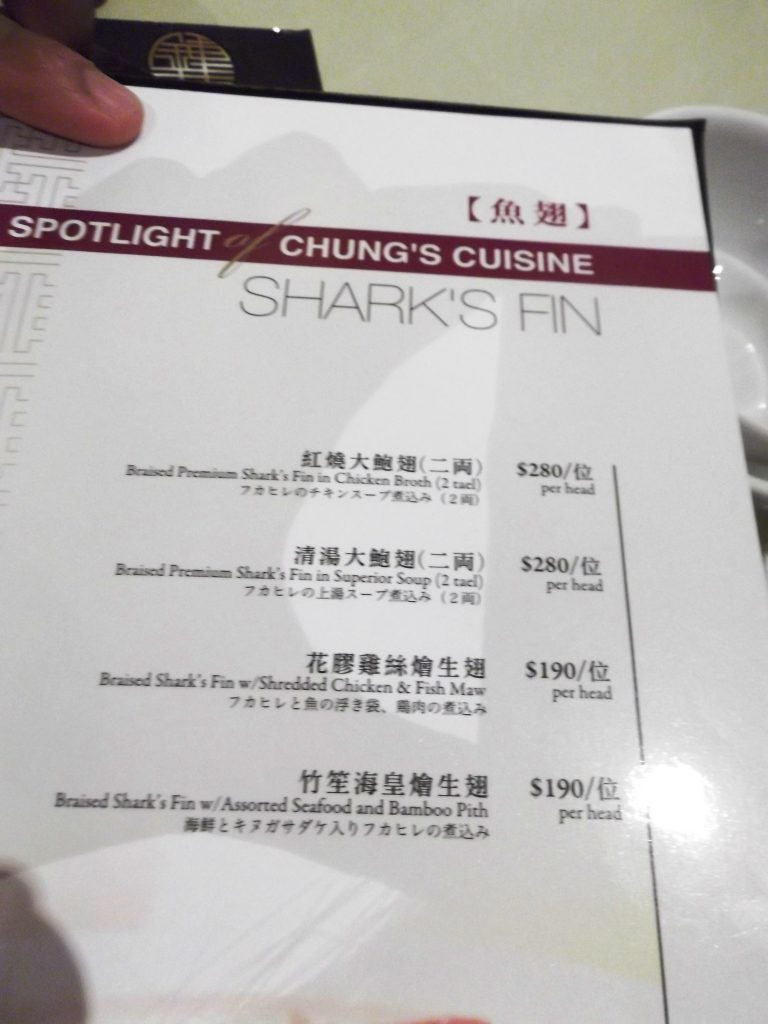This is part 2 of the blog series on our recent trip to Hong Kong for the annual Seafood Summit. Read part 1 here: http://blog.blueventures.org/from-toliaras-sights-to-hong-kongs-bright-lights/
by Sophie Benbow, Southwest Regional Coordinator, Madagascar
Visiting Hong Kong, ‘Asia’s World City’ as the tourism board proudly acclaims on numerous billboards all over town, recently allowed me the opportunity to explore some of the Asian fishing markets and final destinations of the numerous endangered marine products that come from over 120 countries worldwide. Shark fin springs to mind as the obvious product and having been sold on the idea that this was a delicacy served during wedding banquets and business conferences, I was shocked to find it on the menu of a Cantonese restaurant in a shopping mall in downtown Causeway Bay! Clearly we still need to push some serious awareness raising about the plight of the 23 million sharks landed annually to feed the Asian demand for this stringy, tasteless product.
Interestingly, during my first day in Hong Kong, Cathay Pacific announced that it would be introducing a ban on shark fin in its cargo deliveries, which represents an excellent step in the battle to reduce demand. BV has been monitoring the shark fishery in southwest Madagascar for nearly five years now and our data are not very positive. Although the plight of the world’s shark populations has become a popular celebrity cause and has thus gained some great publicity in recent years, I just hope that it is not too little too late.
I was also slightly overwhelmed by the level of development in Hong Kong. Perhaps it was coming from Madagascar, but I was speaking to various people about places to visit and when I was told there was a nice “fishing village” you could visit that was what I was expecting. However, stepping off the bus at the destination in Aberdeen, I was greeted to more high rise buildings and neon lights!! It seems nowhere has escaped development in Hong Kong and the stark comparisons between fishing villages in Madagascar was intense.
Perhaps more excitingly at the Cantonese restaurant I was greeted by the site of the most appetising sea cucumber dish I have ever seen. Blue Ventures runs a community based aquaculture programme in southwest Madagascar to provide farmed sea cucumbers for the Asian market. Traditionally sea cucumber is eaten as a delicacy among the Chinese but I have only ever seen images of it being served whole, which never looks terribly appealing… However, sautéed with some vegetables it (almost) looked good enough to order!
The other curious thing about the Chinese is their desire to order live things for their dinner. Everywhere in Hong Kong, from high end restaurants to street side cafes, seemed to have a selection of live fish, crabs and abalone for the discerning consumer. However, this demand for live fish does not bode well for the environment and comes at a very high price. Hong Kong is the centre of the live fish trade, with the market consumers here contributing $400 million to the estimated $1 billion of the trade’s global value. Live fish originate from southeast Asia and the Pacific Island nations where subsistence fishers employ illegal methods to capture them, damaging large areas of reef in the process. This long term damage to coral reef ecosystems has led to dramatic decline in overall reef health and fish abundance which is threatening the sustainability of these communities. Aquaculture has been proposed as the only solution to stop these alarming trends and the continued use of illegal methods, and I hope that NGOs in the region can implement these projects in time.





